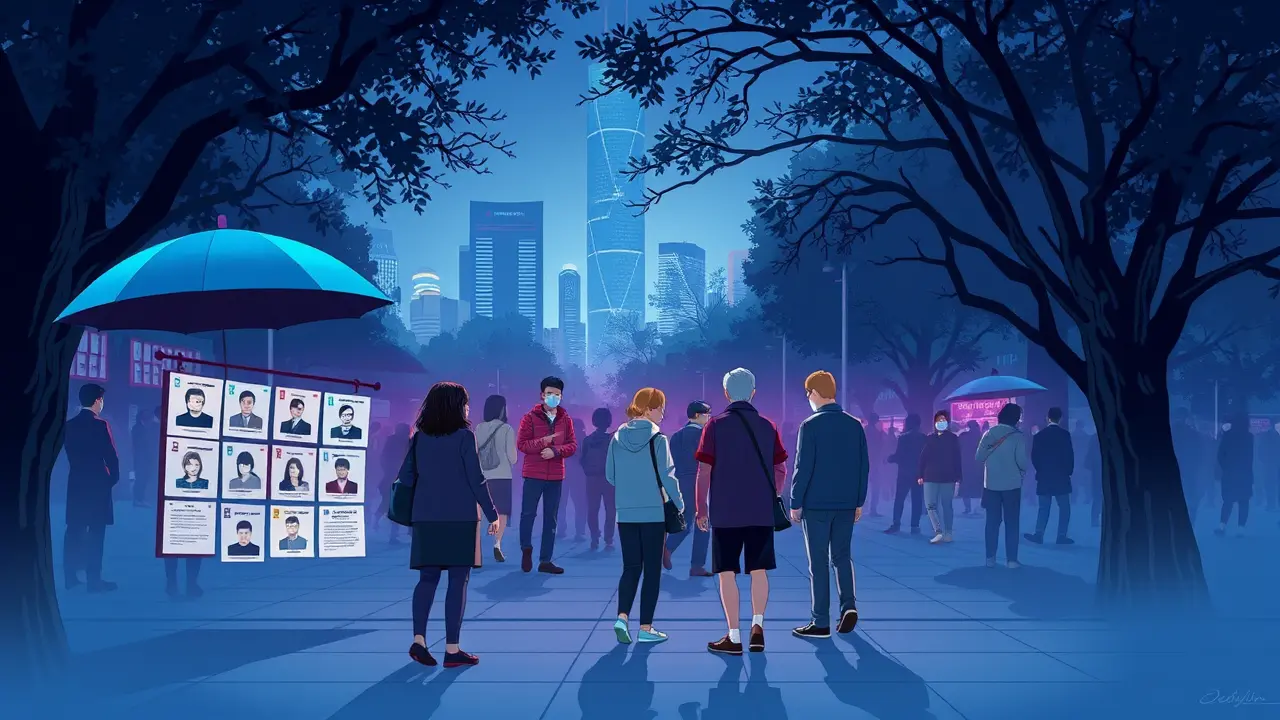
Entertainmentculture & trendsSocial Media Trends
A firsthand experience in Shanghai's marriage market.
LA
Laura Bennett
2 days ago7 min read
The humid Shanghai air clung to my skin as I navigated the sprawling, chaotic ecosystem of People's Park, a world away from the sterile digital grids of British dating apps. My previous life—a meticulously managed spreadsheet of 100 daily Tinder swipes, culled to 50, then filtered through a lens of literary quotes and basic human decency—felt like a distant, almost clinical memory.I had decamped to China on a self-declared sabbatical, ostensibly to research the perfect xiaolongbao, but my real mission was anthropological: to experience being a *shengnu*, a 'leftover woman,' on home turf. The term, a societal label for unmarried women over twenty-seven, carries a weight in China that my spreadsheet could never quantify, a cultural pressure that transforms personal choice into public discourse.The market itself was a stunning tableau of raw, unfiltered human economics. Hundreds of parents and grandparents stood shoulder-to-shoulder, umbrellas planted on the ground like flags, each adorned with laminated placards detailing the vital statistics of their children—not job descriptions or passions, but a stark inventory of age, height, salary, property ownership, and education.A conversation with Mrs. Li, a retired teacher fiercely advocating for her 35-year-old daughter, an accountant, revealed the intricate calculus at play.'A good job in finance, an apartment in Pudong—these are assets,' she stated, her tone not unkind but profoundly practical. 'Love is a seed, but it needs good soil to grow.We are just preparing the soil. ' This perspective, where romantic potential is assessed with the cold precision of a real estate appraisal, stands in stark contrast to the Western ideal of a 'spark,' a concept that elicited bemused shrugs here.I met another subject of this parental enterprise, a man named Alex who worked in tech, his own profile pinned to a tree by his mother. He spoke of a quiet exhaustion, a tension between filial duty and personal desire.'They want security for me, I understand this,' he confided, 'but it makes the heart a secondary concern. It’s like they are building a business merger, and I am the silent partner.' This experience is a microcosm of modern China's great contradiction: a society rocketing into a hyper-capitalist future while its most intimate human institutions remain tethered to deeply traditional, almost feudal, frameworks. The one-child policy, now relaxed, created a generation where a single child carries the weight of two families' lineages and elderly care, making marriage less a union of individuals and more a strategic alliance for survival and social stability.The palpable anxiety of the parents is not merely about loneliness; it is about the collapse of a support system, the fear of a family line ending, and the terrifying prospect of navigating old age without the safety net of a son- or daughter-in-law. Yet, within this system, there is a quiet, burgeoning resistance.I encountered a small but growing cohort of women, successful professionals in their mid-thirties, who now visit the market not as candidates but as curious observers, or even to surreptitiously remove their own profiles. For them, the market is not a place of opportunity but a monument to a patriarchy they are steadily outgrowing.Their financial independence has granted them a previously unimaginable luxury: the right to say no, to choose being 'leftover' over being mismatched. The market, therefore, is not a monolith but a battleground where generational values clash silently amidst the rustling of laminated paper and the murmur of negotiated futures. It is a living archive of a nation's soul, documenting the painful, awkward, and deeply human transition from collective obligation to individual aspiration, a story told not in grand declarations, but in the worried eyes of a mother and the resigned smile of her son.
#featured
#dating
#relationships
#modern love
#China
#social norms
#marriage market
#personal experience
Stay Informed. Act Smarter.
Get weekly highlights, major headlines, and expert insights — then put your knowledge to work in our live prediction markets.
Comments
It’s quiet here...Start the conversation by leaving the first comment.
© 2025 Outpoll Service LTD. All rights reserved.